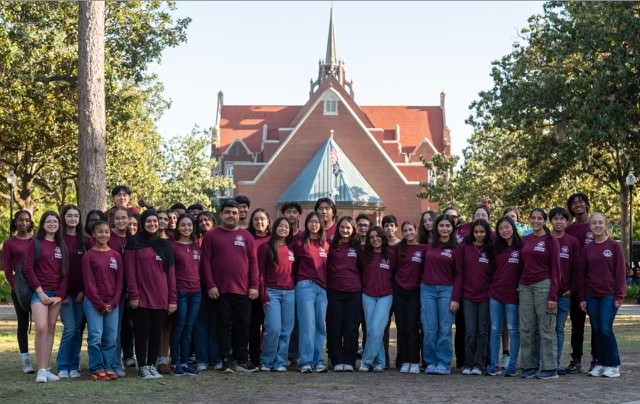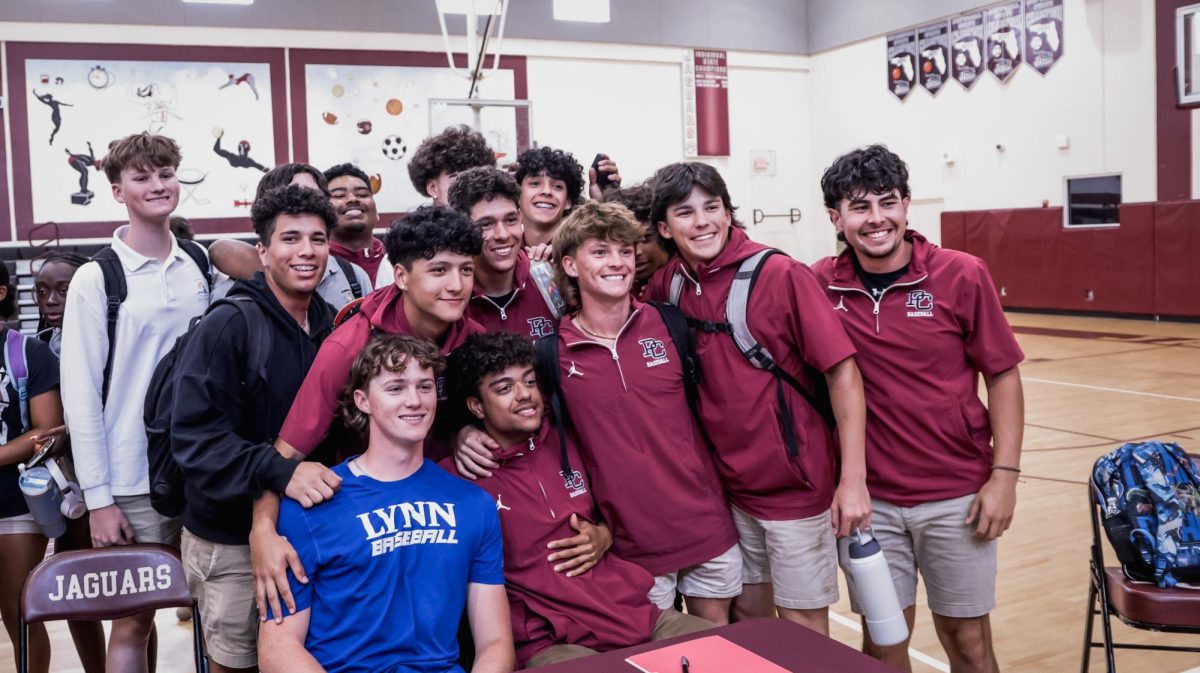Children, whose first images stemmed from blue-light screens, view most of their world through technology. They understand all of the moves when it comes to ‘Instagram-post etiquette’ and scroll through endless algorithms almost constantly. Most of the news or general information they receive also stems from social media.
This information is immensely overwhelming to most older generations. In cooperation with concerned parents, various tech companies have created restrictions. These restrictions can range from simply limiting usage by time, to being able to lock down every app on a computer’s account permanently. It all depends on the owner of the server, or whoever has put the restrictions in place.
Some students have found comfort in these restrictions. Sophomore Aleena Quereshi has no access to any social media. She strictly uses the apps that have been approved to be used. “In my opinion, cyber safety and phone restrictions are essential to operating as a society. They help protect underaged kids from being cyber bullied and harassed.” Quereshi is highly-academically involved and spends very little time on her phone. Nonetheless, she lives a normal, happy life like most teens.
Of the majority of teens who do have social media, there are some who have even skyrocketed above and beyond, gaining virtual fame. Junior David Delgado has garnered over 1.3 million snaps on snapchat and is one of the most snapped students in school. “I’m pretty self aware of how social media is, and I know it could be really dangerous, but I really know how stuff works.” Delgado claimed. The junior noted that he never posts things that are too personal, too controversial, or generally negative.
In terms of restrictions, Delgado has none. His parents let him roam on the internet freely and he abides by general media guidelines. Despite lacking any security walls, Delgado does have an apparent opinion on restrictions. “I think it works, I think it’s good for some people that are on their phone a lot and use apps a lot. I think parents use it maybe too much, but you know, for the most part it’s pretty useful.”
Sophomore Maya Rues gained swift popularity after her friend Isabella Escuedero became TikTok famous, accumulating more than two million followers. Rues was tagged in a few videos of Escuedero’s and eventually, the following spread to her too. Rues currently has a following of 28.5k, and a like count of 74.2k. “I feel pretty safe. I feel like as long as you’re not …posting your personal address and your school and stuff where people can find you and like target you if they have something against you, then you’re safe.”
Rues doesn’t have restrictions either. Unlike Delgado, Maya Rues finds no real reason to restrict a child’s phone. She believes that they are unnecessary. “It’s just going to make them want to use their phone more, and then they’re just going to find ways to hide it,” she stated. Rues speculates that limiting phone features will encourage children to disobey their guardians, creating a distrust between those parties.
There are some who would even go as far to tamper with tech restrictions. This method of bypassing security (or in this case modifying it) is known as jailbreaking. A common skill amongst all hackers, famously used by ‘whitehat’ ones.
An anonymous middle schooler has experience with tinkering with restrictions. He allegedly jailbroke the school library system for free books, and had many devices revoked in the past, due to his immense skill in hacking. “I personally find them unnecessary,” he said on the topic of parental restrictions. “They don’t do anything, I don’t really like them”.
The underclassman was able to bypass iOS’s screen time feature by enabling a lookalike parental wall that was only visible to the device owner. Under this wall, the middle schooler saw no trace of a ‘screen-time restriction’, having freedom to ‘doom-scroll’ for hours on end. The underclassman also reported that he was able to animate his apps in a cadent revolving circle, performing an action even overpriced widget applications can’t perfect (without bugs).
What separates him from most jailbreaking juveniles is the need to download certain files in order for success. Although Apple does take pride in their security focus, if someone were to voluntarily download enough malware, or view the wrong websites; a device’s life could be over with. Beyond apple, android and other devices are notably fallible to breaches, this especially includes computers.
It is recommended of all users to practice certain precautions, on top of general restrictions implemented by the server. “Whenever I’m going on websites that are a little sketchier, I use a VPN (Virtual Private Network) or I might use a private browser to help avoid all risks,” senior Nathan Pothuganti shared. Pothuganti had his own experience with jailbreaking but has since then abandoned the hobby in finding new academic passions. In terms of ‘cybersafety’, Pothuganti defines it as “just having general awareness of the risk associated with using your devices.”
According to Don Maxwell (cybersecurity teacher), users can apply virus protection on their device to ensure electronic safety. “They ought to monitor, have the latest updates. Security updates should be administered on your device from time to time because, as you know, we’re always fighting that war.”
The war in question is defined as the mission for data worldwide. Popular data companies pry information from users through algorithms and adware. Large search engines such as Google use referral sources. Google, for example, uses ‘Googleadservices’ to properly distribute specific ads to users. Other companies may seize Data through suspicious links, such as embedded emails. “Everybody is trying to have access to data. Data has to be protected: Your own personal information has to be protected. So yeah, when across the board, we’re constantly fighting that war to protect data.” Maxwell concluded.
The effort to protect data directly intertwines with the usage of parental/authoritative restrictions. Maxwell, a parent of now adults emphasized how necessary it is to monitor what content their children consume. “Minors will always build curiosity,” he noted.
The idea of data and how it is handled is very vast and political. No one can agree on how restrictions should be implemented, but it is in tech companies’ best interest to allow users to manage their own restrictions. Apple’s screen time service is completely optional for parental guardians and so are Samsung’s parental controls. Children can freely place restrictions on their own computer to practice their own self-control, or leave their devices on factory settings as usual. Restrictions across every company will progressively change. Some due to federal politics, others due to past bug fixes. Regardless, it is solely up to users to decide what is best for themselves and their lifestyle.








